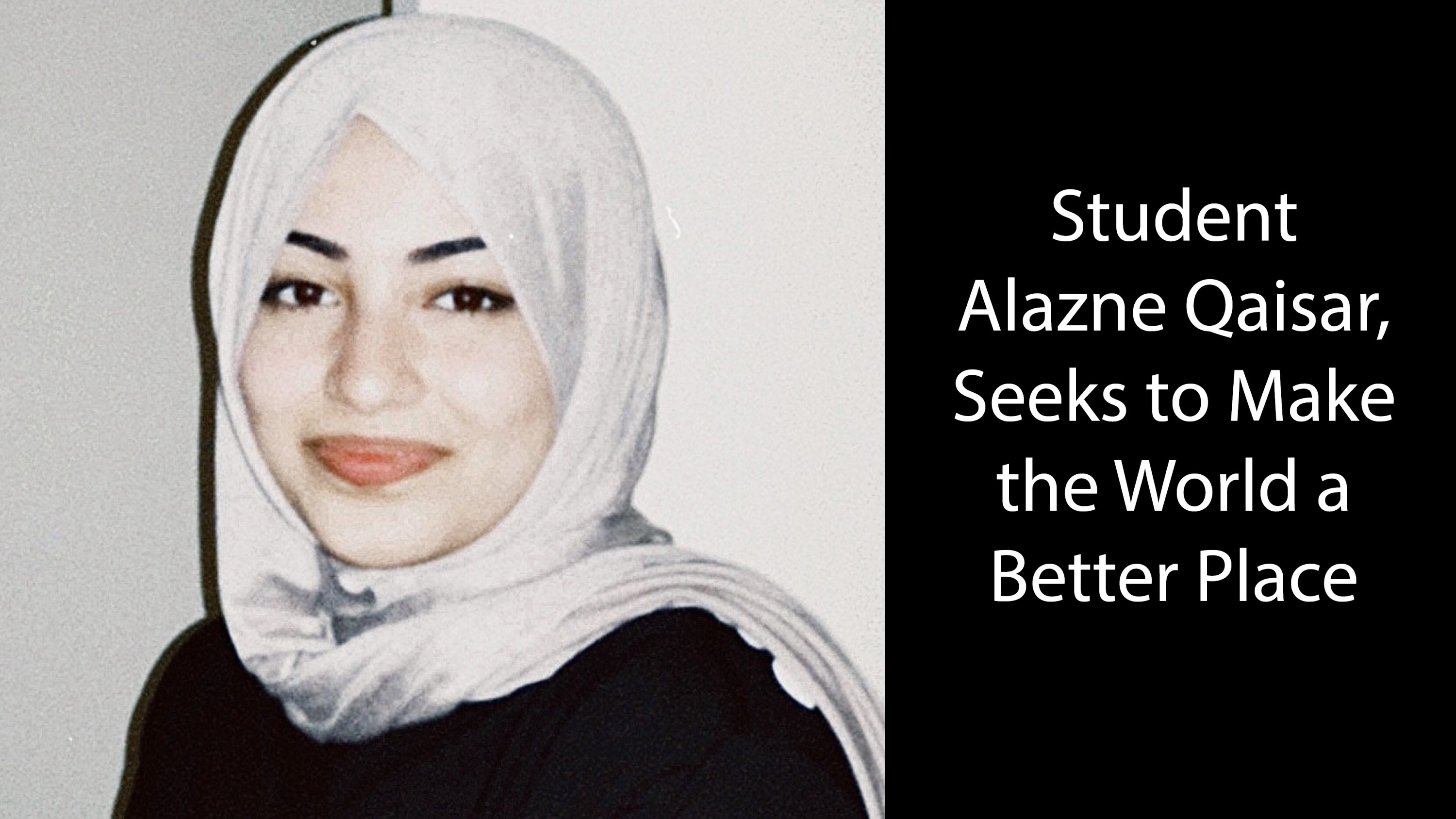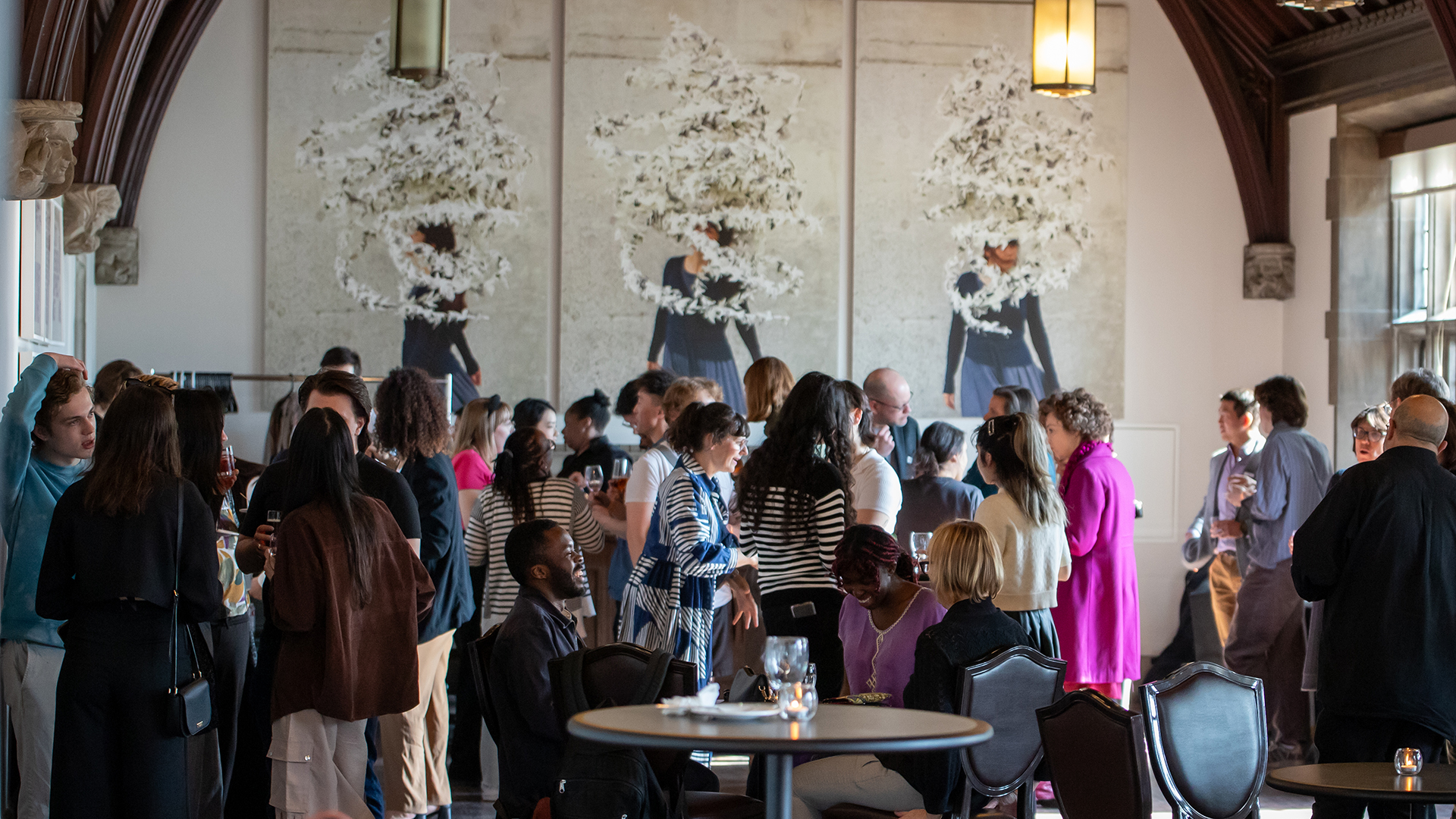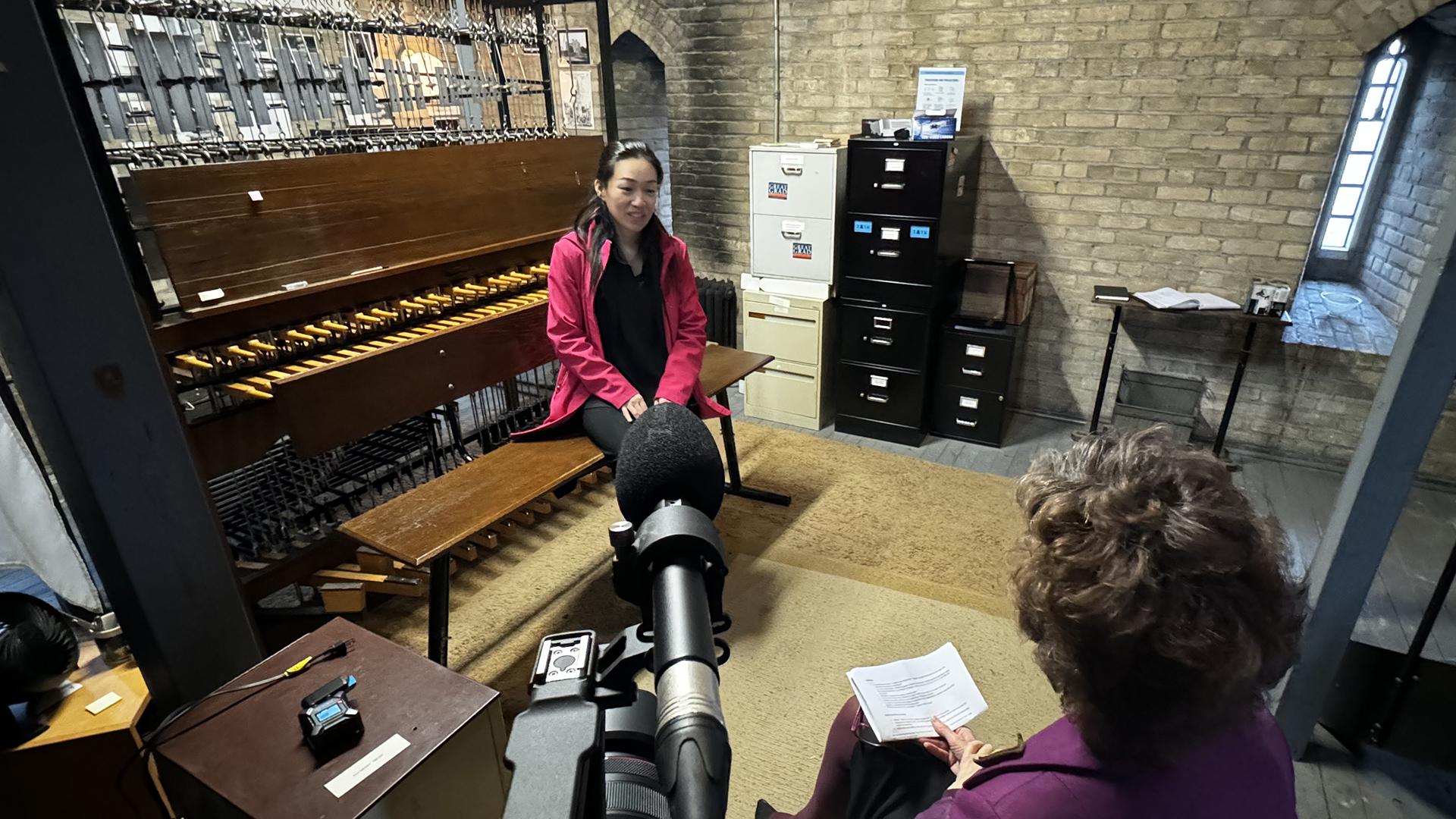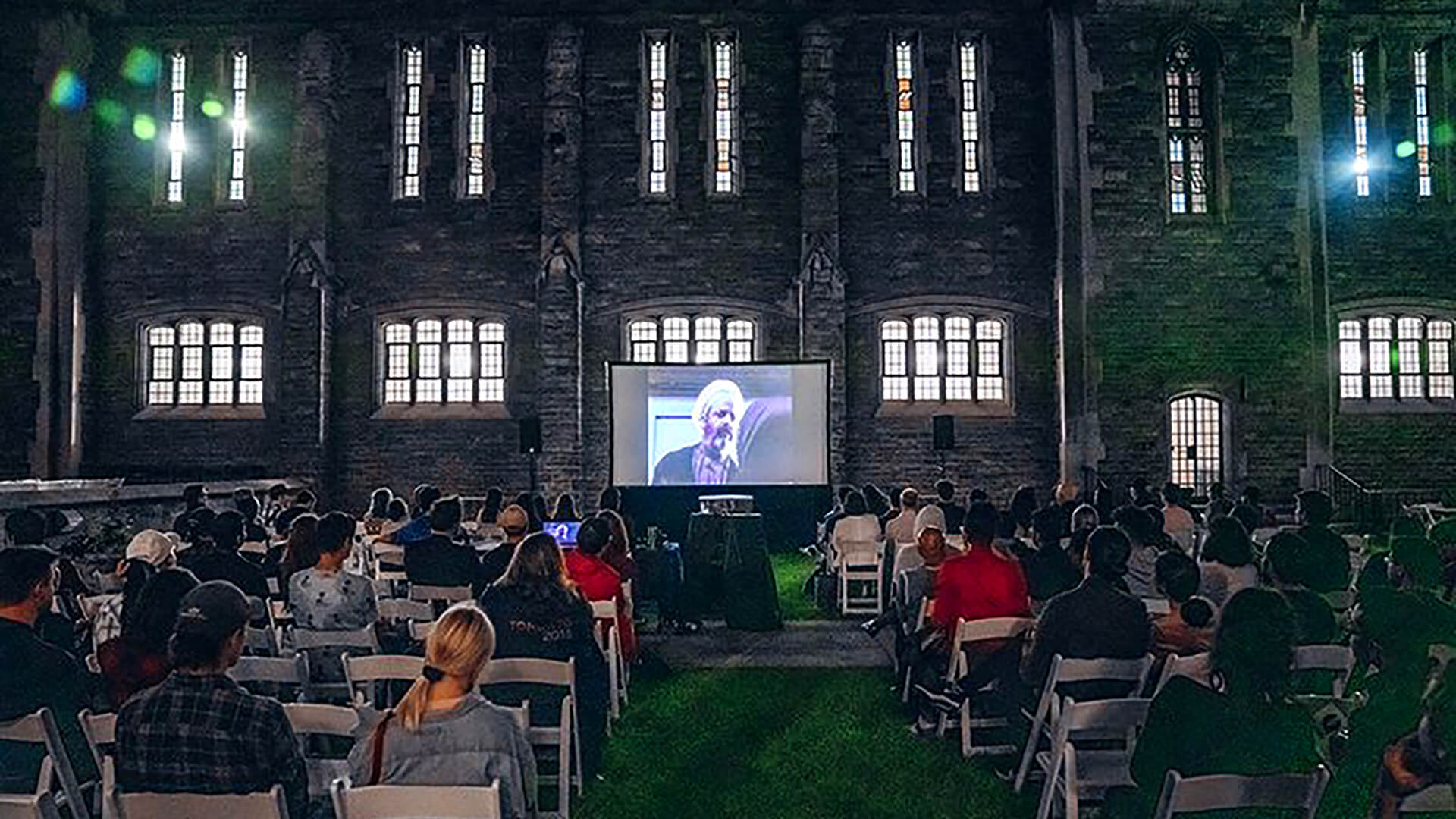
Alazne Qaisar, of the Hart House Student Social Justice Committee, launched an international organization in Grade 11 to give youth a voice. She is also active in U of T’s Reach Alliance, striving to improve the lives of migrant workers in India. She encourages new students to get involved at Hart House, where “there is a place for everyone.”
Student engagement with global communities and issues is a hallmark of Hart House. This is an environment where University of Toronto students can become informed citizens with vigilant protection of human rights and a deep commitment to the principles of equal opportunity, equity and justice.

U of T student Alazne Qaisar is passionate about social justice, and she has already accomplished a great deal in her efforts to make the world a better place. The third-year student at University College is majoring in peace, conflict and justice studies with a double minor in South Asian studies and political science.
Alazne has been involved in the Hart House Student Social Justice Committee for two years. “This Committee is a platform for students from all three campuses to come together and talk about issues that are most pertinent to students, but also to the global community. This encompasses climate change, gender equality and polarization,” she explains, adding, “We don’t shy away from speaking on a wide variety of issues.”
The Committee also unites the efforts of other clubs on campus, such as the Association of Palestinian Students at UTM and Climate Justice UofT. “The aim is to focus on issues in a multi-dimensional way,” she says. “It’s a place to debate, discuss and to come up with some interventions moving forward.”
“Student voices can revolutionize the world”
This intrepid student has been involved in this kind of groundbreaking work, championing student voices, for quite some time. Alazne launched The Written Revolutions in Grade 11.

“I was interested in journalism and amplifying student voices,” she says. “Too often the opinions of youth are not taken into consideration because of their age. But a lot of those decisions made by politicians impact us – future generations. The Written Revolutions was inspired from the idea that student voices can truly revolutionize the world.”
The organization quickly mushroomed from 16 to over 60 members all around the globe, in every continent.
“We have student columnists, videographers and designers; students at Oxford University and from schools in Latin America … Our youngest is 12 years old. Our eldest is 23. It’s a wonderful space where people from all walks of life, from all different political backgrounds, can talk about issues.”
Reach Alliance: Interventions and Innovations for Those Hardest to Reach
Alazne also finds time to participate in the Reach Alliance on campus. Founded in 2015 at U of T’s Munk School of Global Affairs & Public Policy, this Alliance was inspired by the United Nations’ Sustainable Development Goals (SDGs).

Reach is a student-driven, faculty-mentored research and leadership initiative examining how critical interventions and innovations extend to those who are the hardest to reach: those living in extreme poverty, the geographically remote, administratively invisible and marginalized.
Joseph Wong, U of T’s Vice-President International, founded this group. He is also Alazne’s faculty mentor.
One key project Alazne is working on in this Alliance focuses on migrant workers in India. Here, Reach has partnered with the Tata Trusts, a large non-governmental organization with a mission to address the world’s most urgent needs.
Diversity of Thought Counters Polarization
Now starting her third year, Alazne looks forward to the next academic year and her continued work in the Hart House Student Social Justice Committee.
“For me, Hart House represents the student body. In part, in terms of diversity of backgrounds and ethnicity and religion – that’s super important as Hart House has always been a welcoming space that has strived for inclusion and diversity – but I also mean diversity of thought. If we, as students, become too rigid in our thinking and we don't try to reach across the bridge and hear ideas that are different from our own, then we won't be able to progress as a society.
“Hart House is where everyone comes together. What it stands for is reaching across that bridge, regardless of who we are or what we believe in. At the end of the day, we're all trying to make this world a better place in whatever capacity we can. That's something I've learned at Hart House.”
Encourages First-Year Students to Join
Alazne urges students to get involved. She points out the House’s many student-run programs around music, the Hart House Student Debates and Dialogue Committee, the Hart House Farm and more. “There is a place for everyone at Hart House. It is such a wonderful space to interact with other students and learn from them.”
She says joining clubs and committees or volunteering are great ways for students, especially new ones, to make friends. “First year can be daunting. It was for me. When you come to a new environment, like university, where you have so many people and large classes, it can be difficult to get to know someone. Hart House does a great job at making sure that you really get to know one another. I know so many committees that would be happy to welcome first-year students, to give them a fresh perspective and to get some more hands on deck.”
Learn more about Clubs and Committees at Hart House.




